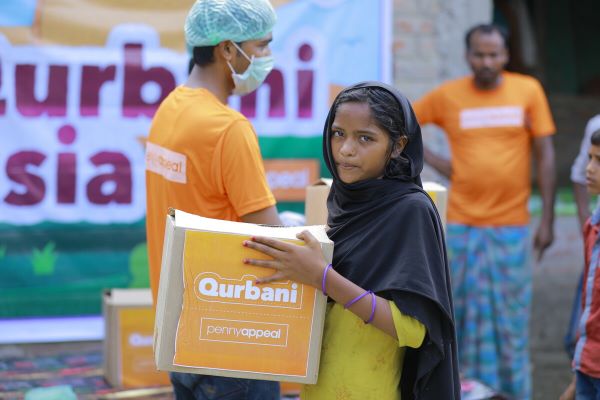Qurbani Around The World

Qurbani is the practice of sacrificing an animal, it commemorates the devotion and obedience that the Prophet Ibrahim (AS) showed to Allah (SWT) when it was revealed to him in a dream that he must make the ultimate sacrifice. Ibrahim (AS) was prepared to sacrifice his beloved son Ismail (AS), but his word was enough as a ram appeared and was sacrificed in Ismail’s place. The story tells us of Ibrahim’s undoubted loyalty and devotion to Allah (SWT) and reminds us that we too must honour his actions.
In the birthplace of Islam, Saudi Arabia, Qurbani is conducted on the grandest of scales. The Saudi government facilitates the process by establishing dedicated areas where Pilgrims can perform their Qurbani and animals are sacrificed in large quantities. Meat is distributed to those less fortunate, and the Festival of Sacrifice is in full swing.
In South Asia, Qurbani is widely observed. In countries such as Pakistan, India and Bangladesh, families will often purchase animals like goats and cows in the days leading up to Eid Ul-Adha. The head of the household will be responsible for performing the sacrifice in accordance with Islamic guidelines. The meat is divided into a share for the family and a share for the less fortunate. In other parts of Asia, in countries like Indonesia and Malaysia where Islam is widely practiced, goats and cows are sacrificed for Qurbani. Special attention is given to those less fortunate during this time and meat is distributed in many communities.
In Africa, Qurbani is important and highly practiced across many countries. Communities often come together to perform Qurbani collectively, combining their resources to acquire animals for sacrifice. The meat is distributed to family members, neighbours, those less fortunate and the wider community. This period is a heightened opportunity for giving back to the poor and providing meals for those who otherwise could not afford them.
In Western countries, such as America, Canada and here in the UK, Qurbani is observed in accordance with local regulations as well as Islamic principles. We often rely on organisations or authorised slaughterhouses to perform Qurbani and distribute the shares for the poor. We allocate portions for our personal consumption and give the remainder to those in need here at home.
This universal practice unites us with our brothers and sisters everywhere who share devotion to our tradition. While the core principles are consistent around the world, country specific customs and regulations vary across regions and cultures. Whether performed on a grand scale in the Middle East, within close knit communities in South Asia and Africa or in diverse settings in Western countries, Qurbani serves as a unifying force, showcasing compassion, generosity, and solidarity. Expressions may differ, but the essence of Qurbani remains – an act of worship, sacrifice, and testament to the true values of Islam.
THURSDAY 8 JUN 2023
